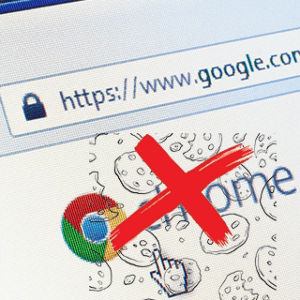cookies
-
Behind the News
Google Responds to the IAB Tech Lab’s Scathing Privacy Sandbox Report: “It’s Full of Inaccuracies”
Last week, the IAB Tech Lab released a comprehensive report detailing the challenges of Google’s Privacy Sandbox. In response, Google thanked the IAB Tech Lab for showcasing their perspective but asserted that their “analysis contains many misunderstandings and inaccuracies, which we consider important to correct in order to provide accurate information to the ecosystem.”
-
Behind the News
Balancing Act: Navigating the Shift From Third-Party Cookies to First-Party Data Strategies
Many publishers have taken the wait-and-see approach since Google announced third-party cookie deprecation on Chrome. Fortunately, publishers haven’t been content to sit on the sidelines. They have been actively exploring ways to use their first-party data to create audience segments for targeting, measurement, and attribution. But are they using the data correctly?
-
cookies
Embracing the Cookieless Future: Publishers’ Opportunity to Take Control
With the third-party cookie deprecation, there’s an opportunity for pubs to regain control of the advertising ecosystem, says Keith Petri, CEO, lockr. By building solid data strategies, based on ethical privacy-safe collection methods, and stopping data leakage, publishers can monetize audiences through direct pathways and emerge victorious.
-
Behind the News
Digital Advertising Needs a New Class of Cookies
The IAB Tech Lab issued a report expressing significant concerns about Google’s Privacy Sandbox. To some in the industry, such as Uri Lichter, CEO at Intango, the problem is that the notion of third-party cookies is too broad. The industry needs to come together to develop a new class of cookies that help the advertising business function properly and ones that browsers don’t ban.
-
cookies
What Is the IAB Tech Lab’s Privacy Sandbox Demo Tool & How Does it Work?
The IAB Tech Lab’s Privacy Sandbox Demo Tool, donated by Index Exchange, was developed to showcase Protected Audience API (PAAPI), a component of Google’s Privacy Sandbox. Using the tool, any ad tech professional can run through a demonstration of PAAPI to see how user interest groups are created and how relevant ads can reach consumers without cookies.
-
cookies
It’s 2024, the Retail Media Revolution Is Here
Data is at the heart of the retail media revolution — not as cold numbers but as the lifeblood of personalized experiences. Every swipe, click, and step tells a story, guiding brands to create not just campaigns, but connections. This approach will propel marketing strategies that resonate, ensuring that product offerings, promotions, and interactions are not just relevant, but compellingly engaging.
-
Behind the News
Google Admits That Chrome’s Incognito Mode Doesn’t Truly Camouflage Users Data
The Big G is updating the warning on Chrome’s Incognito Mode to inform consumers that they and other websites can still track digital users even in private mode. It directly addresses one of the major complaints in the class action lawsuit, which accused Google of not making it explicitly clear that Google collects data from users in private mode.
-
AI
What Will the Next 12 Months Look Like for the Programmatic Supply Chain?
2023 was a trying year for the programmatic supply chain, at least from a PR point of view. But despite the challenges, the open markets are still a vital lifeline for publishers that can’t afford to maintain a dedicated sales force, and its revenue is still predicted to grow. What will the next 12 months look like for the programmatic supply chain? To find out, we asked 4 experts about the issues — good and bad — that the sector will face.
-
cookies
TripleLift & RESET Digital Join Forces: Revolutionizing Diverse-Owned Media Ad Spend
TripleLift (an SSP), RESET Digital (a DSP), and TripleLift’s UNREP (Underrepresented Voices) joined forces to package impressions directing dollars straight to minority-owned media across display, video, and CTV.
-
cookies
Google Finally Pulls the Trigger on Third-Party Tracking Cookies
After several delays that had many wondering if it would ever happen, Google finally pulled the trigger on its plan to deprecate third-party tracking cookies in its Chrome browsers. Today, Google has implemented Tracking Protection for 30 million Chrome users, or about 1% of its user base. Is this a cataclysmic event, the end of digital advertising as we know it? Or will the industry find a way to somehow survive?








